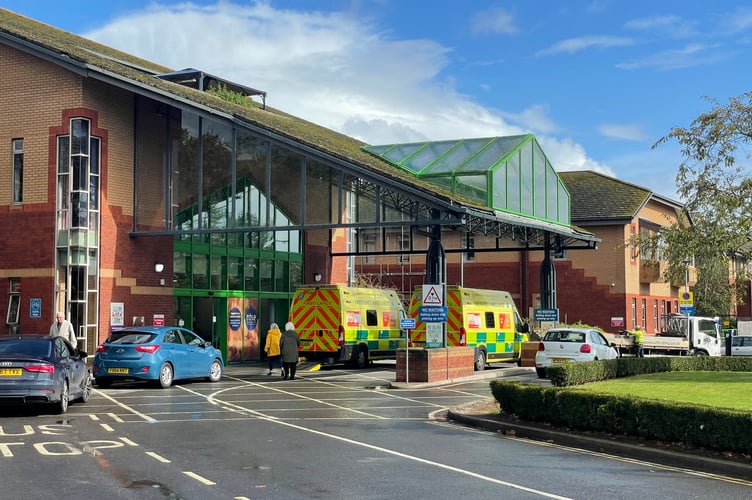OUR National Health Service is a treasured national institution on which we have all had to rely at some point in our lives.
We are incredibly lucky to live in a country where we can access healthcare, free at the point of use.
But the recent report by Lord Darzi into the state of the NHS shows there is an urgent need for change if the service is going to meet the demands of the coming years.
It’s clear that the efficiency and productivity of the system is flawed.
The amounts being spent on healthcare by the government are at record levels, but while funding and staffing levels have been going up the amount of activity and quality of services has not risen in tandem.
We are getting less output despite ever-increasing input.
We saw some of this with the Care Quality Commission’s verdict on the recently formed Royal Devon University Healthcare NHS Foundation Trust.
The CQC said the Trust “requires improvement”, saying management were very slow to deal with issues and problems had been caused by a new electronic records system.
We have been making progress recently in making improvements and cutting down waiting times - with Royal Devon, for example, seeing the number of patients waiting for non-urgent elective treatment down in July compared to the previous month, and lower than the same period last year. But waiting lists are still far too high.
One issue over many years has been that capital budgets, meant for investing in buildings and new equipment, have been allowed to be diverted to help with funding pressures in frontline services, especially during winter when demand goes up.
Over the years this has meant hospital buildings are not getting the upgrades and repairs they need, and the technology being used throughout many trusts is outdated and inefficient.
It is tempting to assume that the answer to poor outcomes in the health service is a few more doctors and nurses to get more stuff done - and perhaps higher pay for the ones we have. But more resource alone is clearly not working, and is at best a sticking plaster.
We must see productivity improvements so that we can get more bang for our buck. Keir Starmer has said this is his intention, but it is not reassuring that one of his first acts on coming into government was to award significant pay deals within the public sector with no strings attached in terms of productivity gains or service improvements, including a 22 per cent rise over two years for junior doctors.
This is not to say by any means that staff simply are not working hard enough - our doctors and nurses work incredibly hard, some with long hours and very difficult jobs.
But the system itself is inefficient and means too often people end up having to spend their time on the wrong things, not providing care for patients who need it. Our NHS is precious - but it needs to change, fast.





Comments
This article has no comments yet. Be the first to leave a comment.